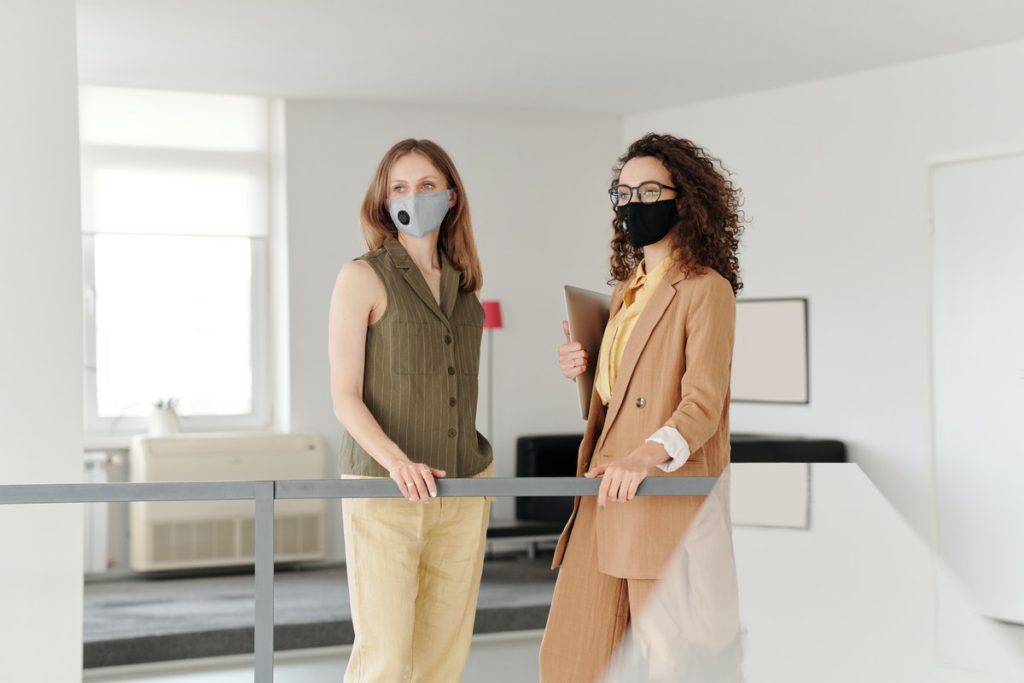Our society is gradually readjusting to the new era as companies progressively return to their operations. With this, employees who opt to work from home may also find themselves going back to their previous affairs.
Thus, as we try to fit into the new normal, it is crucial to take all the learning gained from the pandemic to beef up our plans if similar or even worse scenarios happen again.
Enthusiasts for cleaning were right
Every workplace has that particular employee who complains about the unpleasant smell from the bathroom, the leftovers in the sink, or the spills of coffee on one’s work table. Yet, despite the cost, they have earned the right to revel in their triumph, as we have to admit it. They were correct all along. We must be more vigilant about maintaining clean communal spaces to avoid the transmission of the coronavirus, its variants, and other bacteria that can cause us allergies and life-threatening illnesses.
This entails hiring a reputable commercial cleaning firm to thoroughly clean your carpets, flooring, windows, furniture, and any other areas of your workplace. Nowadays, it pays to be a clean freak.
Offices are for working; hospitals and homes are for healing
Never have the importance of sick employees staying away from their coworkers and the general population to avoid infection and health risk been more poignantly demonstrated than the onset of the pandemic. Usually, Americans were more inclined to report to duty than have a check-up and stay home to get better, as recent polls found that about 90% of employees admit to reporting to work despite their condition.
COVID-19 serves as a reminder and will continue to warn us of the dangers and harm this work practice has been. Many employees admit that they cannot afford to miss work despite getting ill. Therefore, new legislation has begun to emerge around the country that offers workers’ rights to sick pay. And for companies that strive to prevent transmission and prevent their operation from getting halt, this is excellent news.
Check your privilege

We have long assumed that workers who demanded flexibility were asking for a work-from-home setup. Nonetheless, the situation has made us understand that the demands were more centered on the need to better integrate their job into their personal lives. Because cases are more likely opposed, what’s beneficial for you may not have the same effect on others.
And most people who worked remotely during the onslaught of the pandemic reported having had increased pressure and work hours compared to when they were working in a traditional office. Therefore, we should take health and wellness as a core business priority and not just a perk.
An evaluation and consideration of office work floor plans
We are on the verge of slowly transitioning from social to corporate distancing in the workplace. Therefore, open floor layouts may eventually become obsolete as firms rehire employees, emphasizing space in mind. Many have praised this concept during its course. However, people now become more skeptical about it as health concerns arise and privacy issues and its link to decreased productivity, satisfaction, and interpersonal communication among workers.
While it is unlikely that everyone will get their own piece of work box in their respective offices, a trend toward operating in having more spaces in between will likely emerge soon.
Have a backup plan for rainy days
Although the recovery for business profits may be gradual, it is necessary to keep in mind the lessons learned. First, rainy-day reserves are essential for all firms to have on hand. Second, consider having a crisis management team and put away a percentage of revenues while your company revamps to withstand any impending storms. Although these may only represent a tiny fraction of overall income, they can be critical in weathering any economic downturn in the future.
Nobody expected how the world turned upside down in 2020. Therefore, there is no reason to expect the worst-case scenario in the future and learn to prepare for it.
As the era of this pandemic is about to be put down in history, it’s critical to reflect on the lessons and insights we gained from this pandemic in all aspects of life. We have seen how short our memories are throughout history, and everything that is not always present is rapidly forgotten.
For instance, bubonic plague, one of the fatal pandemics that devastated several parts of Europe, has returned repeatedly. Still, after it was brought under control, people began to forget about it altogether. Therefore, an essential takeaway from all of this is to remember and respect our collective past, as these will become a key component for survival in the future.

